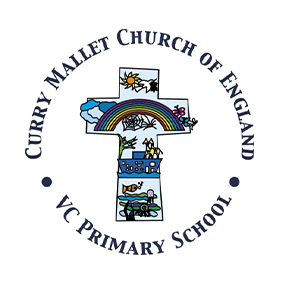Geography
Curriculum Overview
Intent
Geography has its own substantive knowledge; disciplinary knowledge and particular skills. Our curriculum is a spiral curriculum in which key concepts are taught repeatedly throughout the year groups, but with deepening layers of complexity.
Curry Mallet is a three-class school with mixed age and mixed key-stage classes. Due to demographic changes and unpredictable in-year admission numbers, our class structure is not guaranteed to be the same year on year. Therefore, we have sequenced the content of our curriculum offer for Geography using a two or three year rolling program for each class which ensures that whatever path a child takes through our school every National Curriculum objective is taught. Our spiral curriculum enables key concepts to be re-visited and built on as a child progresses through our curriculum.
The Key Concepts in our Geography curriculum are:
- Location
- Place
- Environment
- Human & Physical processes
Key Concepts are explored in every sequence of geography taught. Skills progression is carefully planned so that children make continuous progress.
The disciplinary knowledge of Geography is reinforced through the Key Concepts. By revisiting the Key Concepts each time a new Geography unit is taught, children can make connections with prior learning and reinforce links in their learning across the curriculum. We aim to make the learning stick by revisiting Key Concepts.
The design of our curriculum will help the children to know more and remember more.
Implementation
In Geography, knowledge and skills are taught through our rolling program of enquiry led projects. Curriculum links are made explicit to enhance the children ‘s learning and understanding of subject specific knowledge in context.
High expectations are set and cultural capital is gained by the use of:
- High quality texts
- Authentic resources
- Valuing and teaching subject specific vocabulary
Assessment for learning strategies are used to regularly check learners’ understanding, identify misconceptions and provide concise, timely feedback.
We make sure learning sticks by:
- Low stakes quizzing, and recap and recall of prior learning
- Explicit reference to links between subjects across the curriculum
- Interactive dynamic displays to enhance learning
- Using knowledge organisers effectively
- Building new knowledge within existing schemata by teaching key concepts
- Pre and post teaching to enable all learners to make good progress
Impact
In Geography our children will develop detailed geographical knowledge and skills and as a result achieve well. Learning will be evident in geography books and as a result of fieldwork.
Leaders of Learning will use a range a of tools to evaluate our geography curriculum; to include book looks, staff discussion and pupil voice interviews.
They will ask:
Is the curriculum working well? Are all children making progress?
Does the work link clearly to the curriculum map and develop key geographical concepts?
Are the activities appropriate, engaging and fit the intended learning outcome/objectives?
Is there evidence that the child has made progress against the key concepts in Geography on the curriculum map? Can children use and understand subject specific vocabulary?
/docs/Geography_Disciplinary_Knowledge___Skills_Progression_.pdf
Geography Rolling Program 2024 -2025


